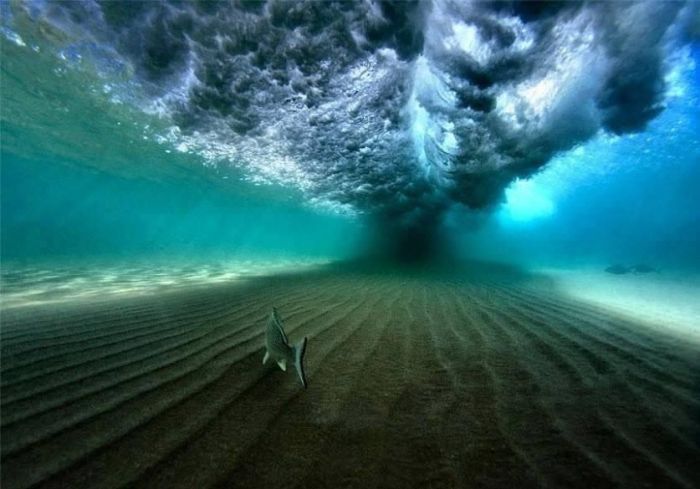
‘All the rivers run into the sea; yet the sea is not full; unto the place from whence the rivers come, thither they return again.’
Ecclesiastes 1:7
Years ago, I had the startling revelation that I am water. Of course, this is not true, nothing more than vanity and self-delusion on my part. Rather, it may be said that water is what I aspire to be, or rather properties that I wish I had.
What do I mean by ‘properties’? Well, for one, water is almost indestructible. Add fire to it and it becomes steam, put it in the cold and it becomes ice. Whatever environment it is put in, it reshapes itself to fit perfectly without losing the core element of its ‘true self’. Too much of it can kill you, as can not enough. It washes away filth and brings new life. It is the building block not only of nature but also ‘civilisation’ as nothing could not be built without the proximity of water. Buildings that scrape the sky could not do so without a foundation of water. It has great patience and can wear down and endure any obstacle, it has great violence and great tenderness. Water is almost the very definition of perfect balance; it is, in many ways, one of the few times we can conceptualise the vague meaning of the notion/word ‘perfect’.
One writer who refers to water as having a great symbolic role is Hermann Hesse. In two examples, The Glass Bead Game and The Prodigy (my favourite of his) at the defining point where the protagonist has to decide whether to change his life, when his notion of self has been all but obliterated, the character drowns, whether this is by accident or as suicide is as ambiguous as Ophelia’s demise, yet, in many ways it seems that Hesse is killing the character so as not to have to confront the change which the character, possibly full of autobiographical qualities, has to face. Yet, in another of his works, Siddhartha, the protagonist tries the many forms of gluttony- abstinence, hedonism etc. and then only finds peace when an older, wise man tells him to just sit and watch the river flow:
‘People disagreeing on all just about everything, yeah
Makes you stop and all wonder why
Why only yesterday I saw somebody on the street
Who just couldn’t help but cry
Oh, this ol’ river keeps on rollin’, though
No matter what gets in the way and which way the wind does blow
And as long as it does I’ll just sit here
And watch the river flow’
-Dylan
One might argue that this is also a form of suicide as to withdraw from the world and watch the river flowing is to remove the person from the responsibilities of being within the world.
The pre-Socratic Greek philosopher, Heraclitus, maybe understood the metaphor and nature of water greater than any other. Just as it says in Ecclesiastes, there never is, unlike what Hesse tries to create, any closure when it comes to water. Heraclitus expanded upon the notion of water to relate it to both time and the development of the individual as he stated that one cannot step into the same river twice as with the motion of the water the river is not the same as it was before (i.e. no longer those molecules) and nor is the person stepping into the water (hopefully) the same having developed as a person (note: I say hopefully as I have met too many people who have seemed to stop growing at high school/university which seems to indicated a wasted life). After all, water erases the past and gives birth to the future.
Water in terms of actuality and in terms of the realms of metaphor is almost perfect in many ways. Maybe that is why some love looking out over the ocean whilst some fear it so much as it, in many ways, becomes a mirror of who we are. The great vastness of desolation with superficial changing moods and emotions but beneath the surface a dark and complex world unfathomable (gettit?) to the human mind.
‘till next time



